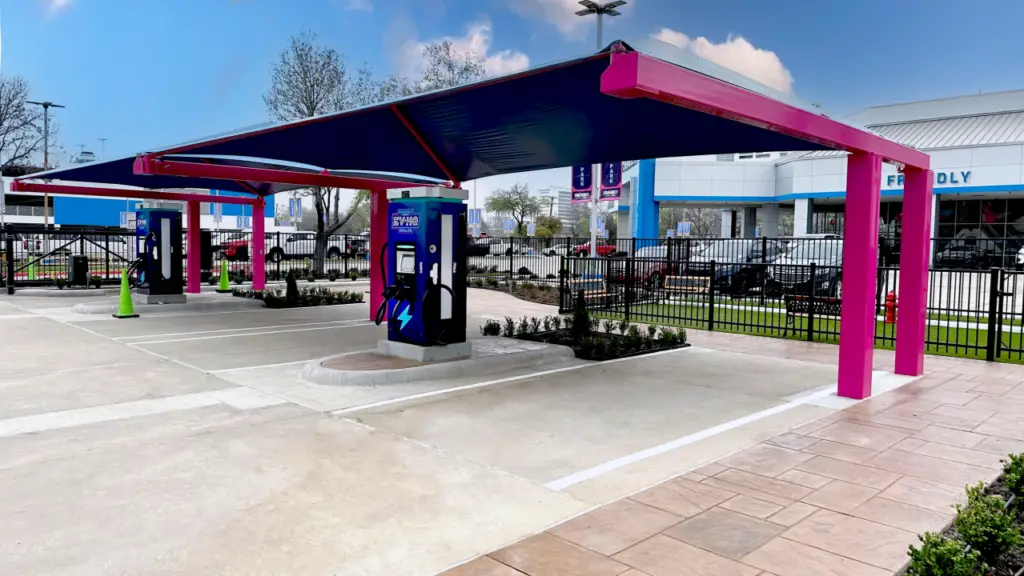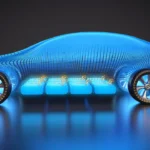In the annals of 2023, a remarkable milestone was etched into the automotive history of the United States: 1.2 million consumers chose to embrace electric vehicles (EVs). This achievement not only underscored the rapid progression of the EV market but also signaled its burgeoning momentum.
While some headlines occasionally cast doubt on the EV revolution—highlighting sporadic challenges or scaled-back ambitions by certain automakers—the truth remains undeniable: electric mobility is steadily advancing from the realm of ‘early adopters’ into the embrace of the ‘early majority.’
As the EV landscape evolves, its hurdles shift from novelty-driven challenges to issues of scalability. Among the most pressing are the “chicken-and-egg” dilemmas faced by automotive dealerships, whose pivotal role in this transformation is often underappreciated. However, with strategic ingenuity and bold adaptation, dealerships can establish themselves as cornerstone institutions in the electric mobility ecosystem.
Confronting EV Hesitancy with Confidence and Clarity
A primary barrier impeding EV adoption is the hesitation of potential buyers, often driven by concerns such as high costs, unfamiliar technology, and doubts about the charging infrastructure. Whether these apprehensions are rooted in perception or reality, dealerships are uniquely positioned to dispel such fears and transform them into opportunities for growth.
Dealerships that reimagine their roles can transcend the traditional car sales model by becoming authorities on EVs, offering unparalleled guidance, and cultivating EV culture in their communities. By embracing a forward-thinking approach, these businesses can capitalize on new revenue streams while leading the charge in sustainable transportation.
Becoming an Institution of EV Excellence
For most consumers, the car-buying process is already fraught with anxiety. With EVs introducing novel concepts like regenerative braking, battery range, and charging protocols, the stress can amplify. It is here that dealerships must step in—not merely as sales outlets but as educational hubs.
Revamping the Test Drive Experience
A cornerstone of the EV educational journey begins with the test drive. Unlike their internal combustion engine (ICE) counterparts, EVs require a nuanced introduction. For instance, explaining the benefits of regenerative braking—a system that recaptures energy during deceleration—can demystify the unique driving sensations associated with EVs.
Empowering Sales Representatives
Sales teams should be equipped to articulate the economic and environmental benefits of EV ownership, from reduced operating costs to government incentives. Addressing common concerns, such as range anxiety and battery longevity, further solidifies consumer trust. Alarmingly, less than half of dealers feel adequately prepared to sell EVs, with many consumers reporting they are better informed than the sales staff.
“The gap between consumer knowledge and dealer expertise is a missed opportunity. By bridging this divide, dealerships can foster trust and loyalty.”
By becoming repositories of EV knowledge, dealerships not only enhance the buying experience but also position themselves as go-to resources, encouraging repeat business and referrals.
Fueling Growth with Charging Infrastructure
Beyond education, addressing the charging conundrum is paramount. Dealerships can lead by example, offering comprehensive insights into home charging setups, public charging networks, and strategies for navigating the charging landscape.
On-Site Charging as a Strategic Asset
Integrating EV charging stations into dealership operations offers multiple benefits:
- Maintaining Inventory: Ensuring EVs on the lot are always test-drive ready.
- Hands-On Education: Demonstrating charging processes in real-time.
- Customer Attraction: Offering free or discounted charging services can draw potential buyers, turning charging downtime into opportunities for showcasing vehicles and services.
By creating experiential charging hubs, dealerships can transform into community focal points for EV owners, generating revenue through charging fees and ancillary amenities.
Case Study: Friendly Chevrolet’s EVHQ Charge Park
An exemplary model of this approach can be found in Dallas, Texas, where Friendly Chevrolet has redefined dealership innovation with its EVHQ Charge Park. Since its inception in 1956, this dealership has been a pillar of the Dallas automotive scene. In response to rising EV demand, General Manager Chris Herbig spearheaded the creation of a state-of-the-art charging facility, seamlessly blending advanced technology with consumer-centric amenities.
Features of the EVHQ Charge Park:
- Eight 120kW Fast-Charging Ports: Covered for convenience and protection.
- 24/7 On-Site Attendants: Providing assistance and enhancing the customer experience.
- Revenue Growth: Within six months, monthly revenue from charging surged by 55%, surpassing $59,000.
At $0.69/kWh, the premium pricing has not deterred customers but instead fostered a loyal community of EV drivers. The EVHQ Charge Park serves as a testament to the potential of creative charging solutions in building dealership prestige and profitability.
Reimagining the Service Department
The transition to EVs presents unique challenges for dealership service departments. Unlike ICE vehicles, EVs require less frequent maintenance, eliminating staples like oil changes and transmission repairs—longstanding revenue drivers. In 2022, these services generated an average of $8.2 million for dealerships, accounting for 12% of total sales.
Bridging the Technician Gap
Despite the reduced maintenance demands, EV servicing requires specialized expertise. Unfortunately, only 1.5% of automotive technicians are certified to work on EVs. This shortage exacerbates service delays, frustrating customers and discouraging EV adoption.
By investing in technician training and upgrading facilities, dealerships can:
- Reduce Service Wait Times: Enhancing customer satisfaction.
- Unlock New Revenue Streams: Through EV-specific services.
- Build Consumer Trust: Establishing themselves as reliable partners in EV ownership.
“The dealerships that prioritize technician reskilling today will dominate the EV market tomorrow.”
Charting a Sustainable Future
As custodians of the automotive transition, dealerships hold the power to shape the electric mobility landscape. By proactively addressing consumer concerns, investing in infrastructure, and reskilling their workforce, dealerships can redefine their roles in the EV era.
Key Takeaways for Dealerships:
| Opportunity | Action | Outcome |
|---|---|---|
| Educating Consumers | Train sales staff to address EV concerns. | Increased consumer confidence and loyalty. |
| Charging Infrastructure | Build on-site charging hubs. | Revenue growth and community engagement. |
| Service Department Evolution | Reskill technicians for EV maintenance. | Reduced wait times and new revenue streams. |
The success of initiatives like Friendly Chevrolet’s EVHQ Charge Park demonstrates the immense potential awaiting dealerships that embrace change with imagination, collaboration, and determination. Those who rise to the occasion will not only thrive in the present but also lay the foundation for a sustainable automotive future.



